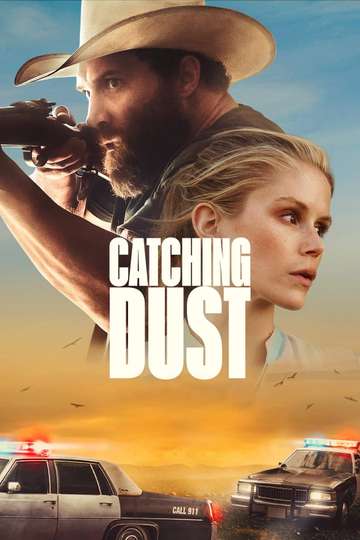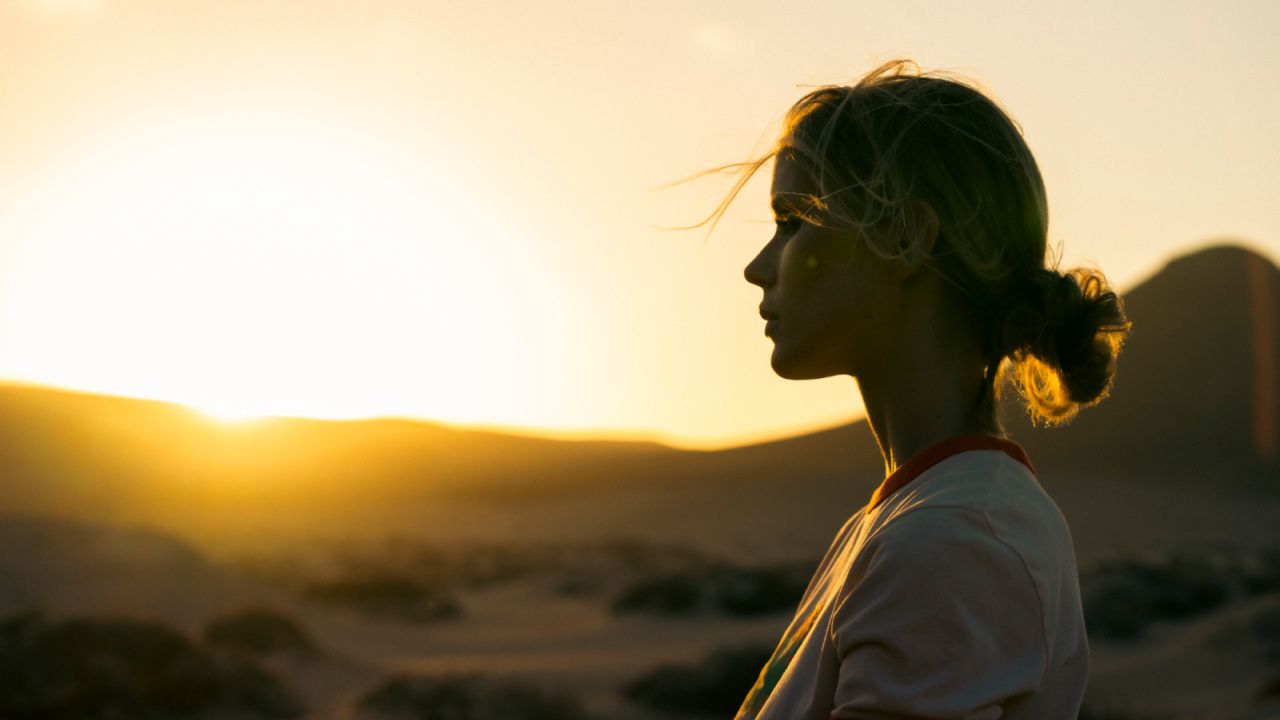
Erin Moriarty in ‘Catching Dust’. Photo: Vertical.
Opening in select theaters, as well as available on Apple TV and Prime Video on August 23rd is the new drama ‘Catching Dust’, which was written and directed by Stuart Gatt and stars Erin Moriarty (‘The Boys’), Jai Courtney (‘The Suicide Squad’), Dina Shihabi (‘Tom Clancy’s Jack Ryan’) and Ryan Corr (‘Hacksaw Ridge’).
Moviefone recently had the pleasure of speaking with actress Erin Moriarty and filmmaker Stuart Gatt about their work on ‘Catching Dust’, developing the screenplay, Moriarty’s approach to playing her character, her relationship with her husband, symbolic vultures, and the movie’s ambiguous ending.
Related Article: Antony Starr and Chace Crawford Talk ‘The Boys’ Season 4 and The Seven
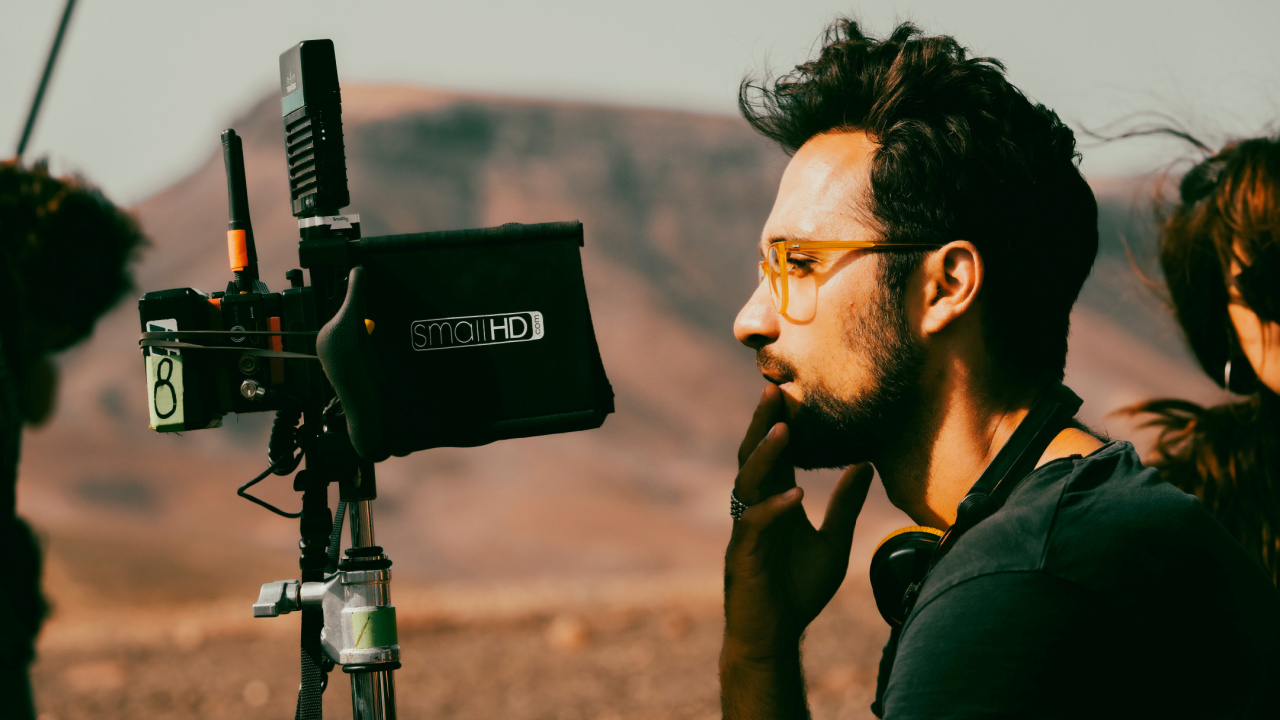
Director Stuart Gatt on the set of ‘Catching Dust’. Photo: Vertical.
Moviefone: To begin with, Stuart, can you talk about developing the screenplay and the themes that you wanted to explore as a director?
Stuart Gatt: I had this idea of setting something in the American west, something that felt very expansive but also very isolated in terms of the story. This was one of those films, I think where it is not always like that, but you write, and you let the characters guide you in a way. A lot of the themes presented themselves to me as I got to know the script more and the story more. I realized that many of the themes were dealing with stuff that I’d grown up with like a single mom and understanding her journey with my dad. I think there’s elements of my mom in Geena and my dad in Clyde that felt in some ways like this film was some kind of therapy for me without realizing it when I was writing it. But it is interesting. I think when I look at it now, I’ve really taken a very personal thing and just transposed it on a world that’s totally different. Maybe that makes it a little bit easier for me to take in and process. The universal themes, I think because we do live in a world now where everyone feels so connected, but we’re probably the most disconnected we’ve ever been as a race. That was interesting to me that you had this character with Geena who was trying to understand who she was, she’s trying to understand her place in the world, her value, but she’s totally disconnected from it and it’s almost like an inverse of what we feel now. People are very connected but feel so disillusioned and so disconnected. I think it was an interesting way to explore it. I think what you’re trying to do when you’re writing really is you’re asking yourself, “Who can you put around this character right now? What’s the worst thing that can happen to her? Or the best thing that can happen to her in terms of these people that you put around her?” I think with Geena really trying to figure out who she is and these dreams of what the big city offers, she meets these people that have come from that place, and she seemingly believes that they’re the answers to all their prayers. She has this intense development with them, and all her beliefs are challenged so that by the end of the story, she’s not the same Geena that we met in those opening moments
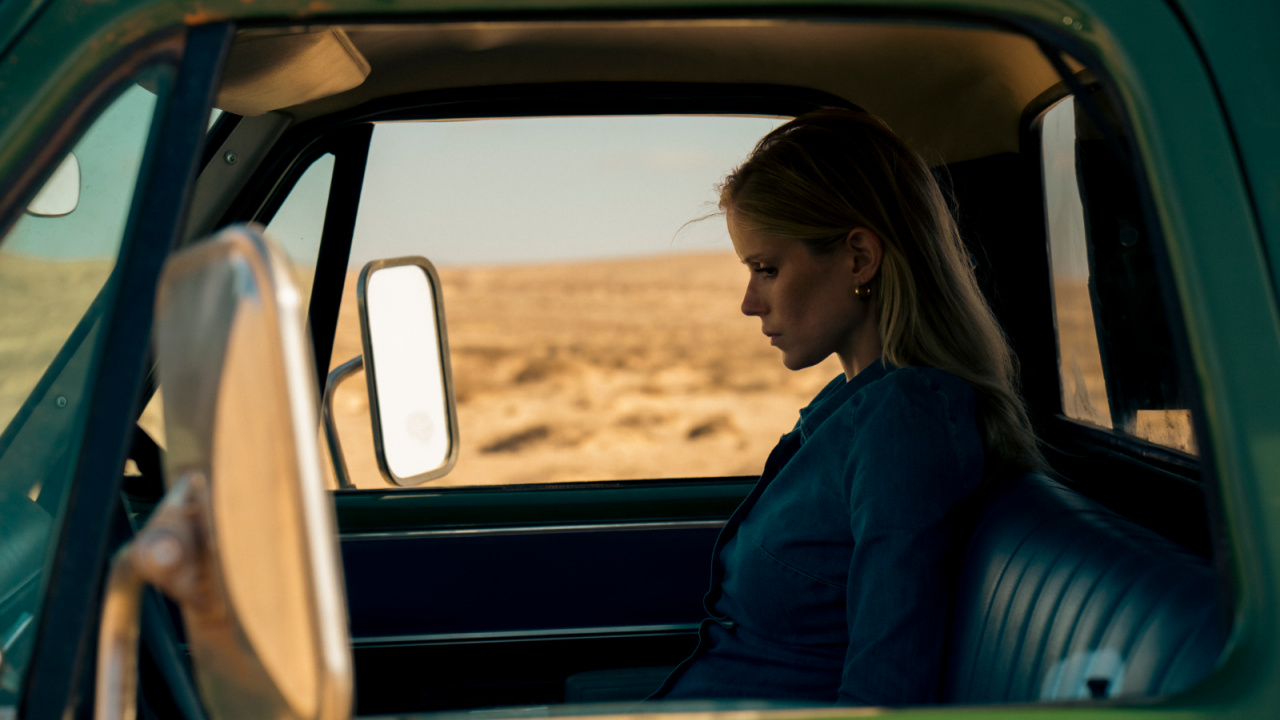
Erin Moriarty in ‘Catching Dust’. Photo: Vertical.
MF: Erin, what was your first reaction to the screenplay and what was your approach to playing this character?
Erin Moriarty: The screenplay and my approach to Geena, were very similar. I honestly was like, “Thank God,” because even the concept of this script having themes, which it does, of course it has motifs, it has all these components that any film does. I just love a film and a character that breaks all the boxes that you want to put it into. I felt like it did that. I just felt like any placement in this industry, however small, however large, that this can play, we just need to keep those projects going. Then with Geena, I just felt this feeling with her that I haven’t felt with many characters. It was a credit to Stuart. She’s written in a way where my heart is breaking for her but not in the typical way where she’s the ingenue and she’s the victim. It was for very complicated reasons that are almost ineffable. I knew that I needed to do a project and I’m going to get so much out of character when I feel like the stakes are high and I get nervous about making sure that I make every single moment of her emotional experience not drop. I needed everything to land even in an understated way, if not in an overt way, but she’s so complicated. For me I just love this new exploration of the paradoxical nature of being human, but also being a woman. I love that Stuart wrote a character that does, she surprises you and she’s paradoxical. That doesn’t mean she’s a bad person, it’s all in the gray, but it’s that paradoxical element to every character and the script itself and the psychological and emotional density that was present and dark. I liked that it was dark. I like a mess. I like playing messy characters. I remember talking to the boss (Eric Kripke) that I work with so often on ‘The Boys’ who created ‘The Boys’ and he taught me something, which is we think that by making a story broader and a character more generic, we’re going to have that character be more relatable. But the more specific the character and the storyline is, the more it will resonate with us. The fact that Stuart infused those specificities is what translates into a film that resonates. I think that’s why we think generic or general or reductive is the safer choice and it will apply to more people, but ironically it doesn’t.
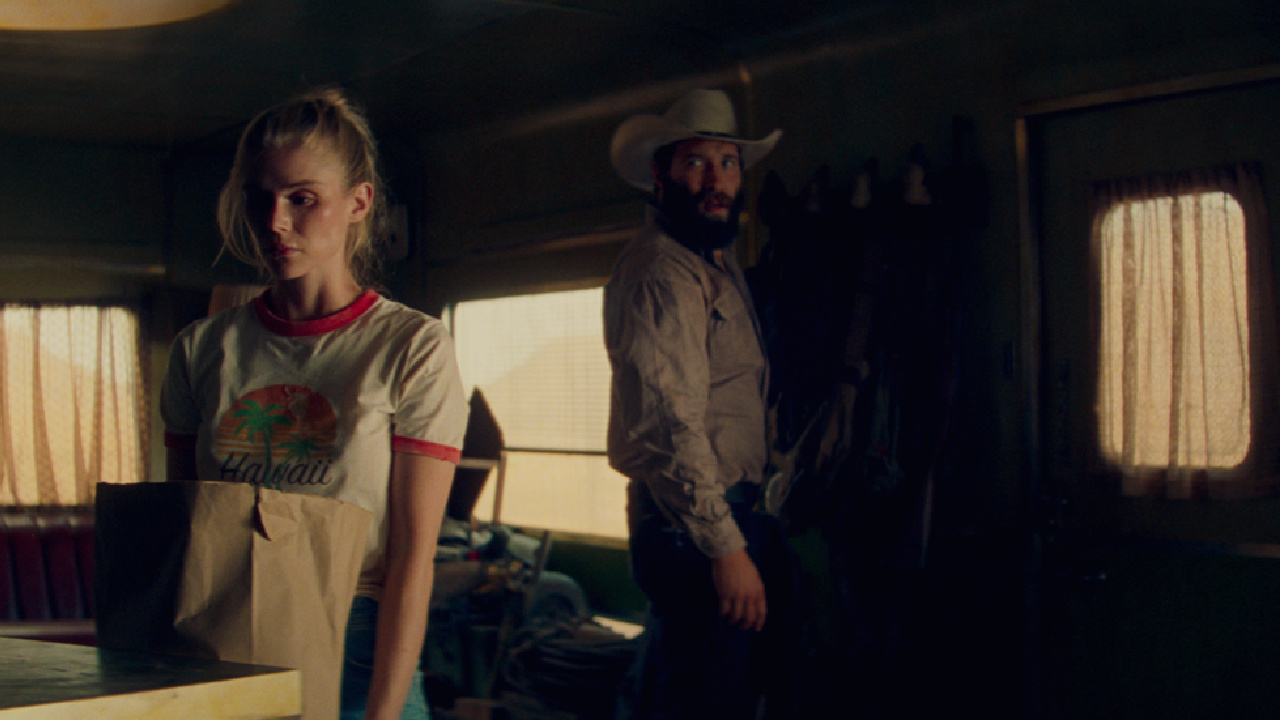
(L to R) Erin Moriarty and Jai Courtney in ‘Catching Dust’. Photo: Vertical.
MF: Can you talk about Geena’s marriage to Clyde and how that relationship changes when Andy and Amaya come into their lives?
EM: It’s interesting because we’re conditioned to believe that we should not rely on extrinsically motivated opinions or just influences in general from others that we need to intrinsically define ourselves. Comparison is the thief of joy. I do believe that. Yet all these things are said, but there’s always something to contradict them. There must be a balance. I think we meet Geena, and I think it’s very powerful from the beginning that there’s something growing in her that is just an inherent curiosity. But the combination of that coexisting with her love for Clyde, which is painful because A, her curiosity means that she might need to ultimately depart the person she thought she would be with for the rest of her life, but also confront who he is. I think that’s one of the hardest things we can do. We tried to make very present in her that she comes from a suppressed background. When she falls madly in love, that’s enough. He does allow her to see so much. I will say that someone would otherwise label him as a suppressor, but he’s hurt. Hurt people, hurt people. I think he heals her in a way with how much he loves her, but to a certain point. I think that that dynamic and her relationship with Clyde is ultimately the thing that is so heartbreaking because she loves him so much and because she knows that she must confront the reality of who he is while she confronts the reality of who she is. To learn that the person you’ve loved and who has changed your life, and your life has been defined by this love, is not quite the person you thought they were, it doesn’t mean that it was all fake, and I don’t think it was at all. But it’s really complicated, and it brings up a lot of questions that I don’t think we often ask when it comes to love, because we usually start at the point at which the breakup is over, or the breakup is happening. But we were very intent on wanting to feel the love before it happened because that was just the mandatory precursor to feeling any of the emotional states. I’ll just quickly say that it’s so cool to me to explore a female character whose eyes are open via other characters, but it doesn’t negate the strength that she finds in the end or the power of her story just, it’s about how we metabolize these situations. She could have not done anything, but she did something and it was huge, and it took a lot more bravery than just being passive. I think it presents the fact that just because other people open your eyes it doesn’t mean that that’s what determines your strength or how you behave in reaction to those moments in your life. She behaves in a way that is, I think, so painful for her, but so necessary. She puts her oxygen mask on for the first time in her life.
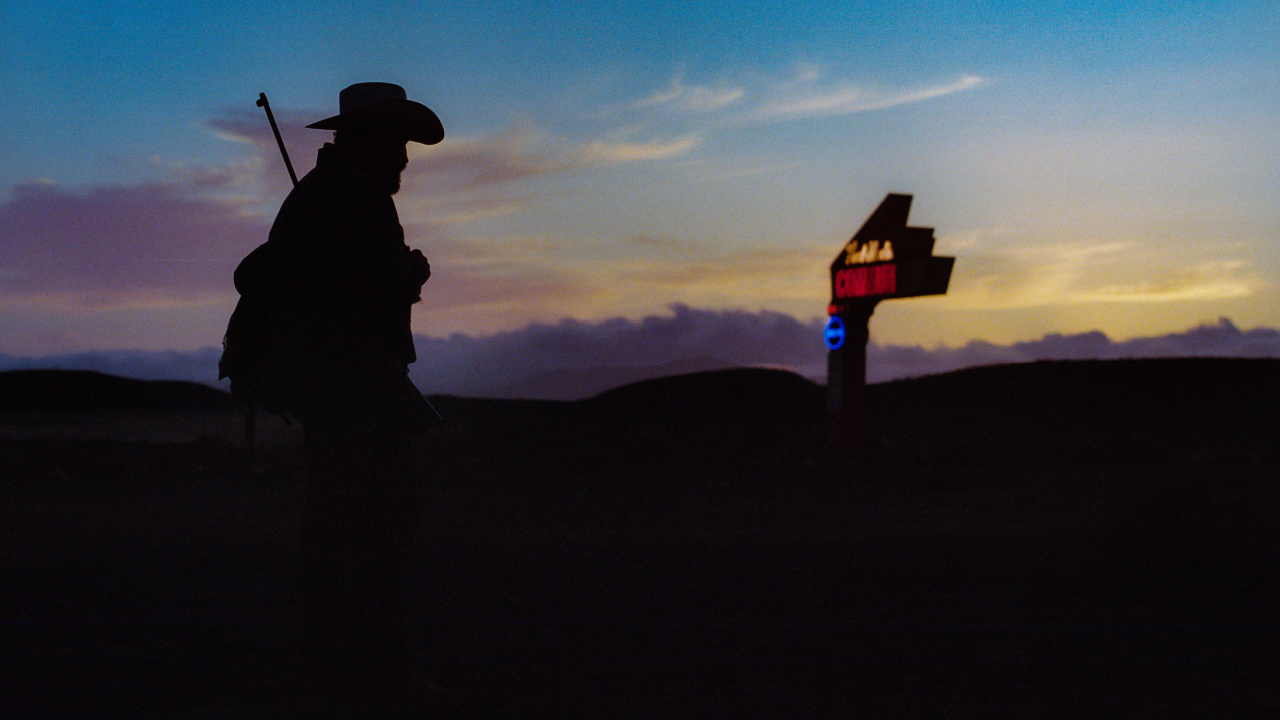
Jai Courtney in ‘Catching Dust’. Photo: Vertical.
MF: Finally, Stuart, can you talk about the symbolism of the vultures that are seen in the movie, and the choice to make the ending ambiguous?
SG: With the birds, it’s more than just the birds, I wanted to play with this idea that nature understood there was this impending death and destruction and this cataclysmic event that’s developing there. It starts with Clyde, and he says he went hunting and everything had buried itself away. We see the vultures that are circling early on, the sense of death. By the end, when we’re close to the end, it’s huge amounts of vultures circling. But we also see it with the tortoise, we see it with the snake, everything is slowly gravitating towards or away from the one little nucleus in the middle of Big Bend Texas. Regarding the end, you will never have me explain certain things. The one thing I will say though is of course there’s an element of ambiguity to it because it’s not a very spoon-fed ending. But I think it’s one of those things that I would not be doing my job if I was trying to spoon-feed the audience what they take away from it. That’s all I’ll say.
What is the plot of ‘Catching Dust’?
Geena (Erin Moriarty) and her outlaw spouse Clyde (Jai Courtney) have taken refuge in a solitary trailer on a deserted community in Texas’ Big Bend. Tired of his autocratic ways, Geena plans to escape, when a new trailer shows up with a pair from New York (Dina Shihabi and Ryan Corr). Geena persuades Clyde to let them stay, despite the dangers they will bring, a choice that leads to serious trouble for everyone.
Who is in the cast of ‘Catching Dust’?
- Erin Moriarty as Geena
- Jai Courtney as Clyde
- Dina Shihabi as Amaya
- Ryan Corr as Andy
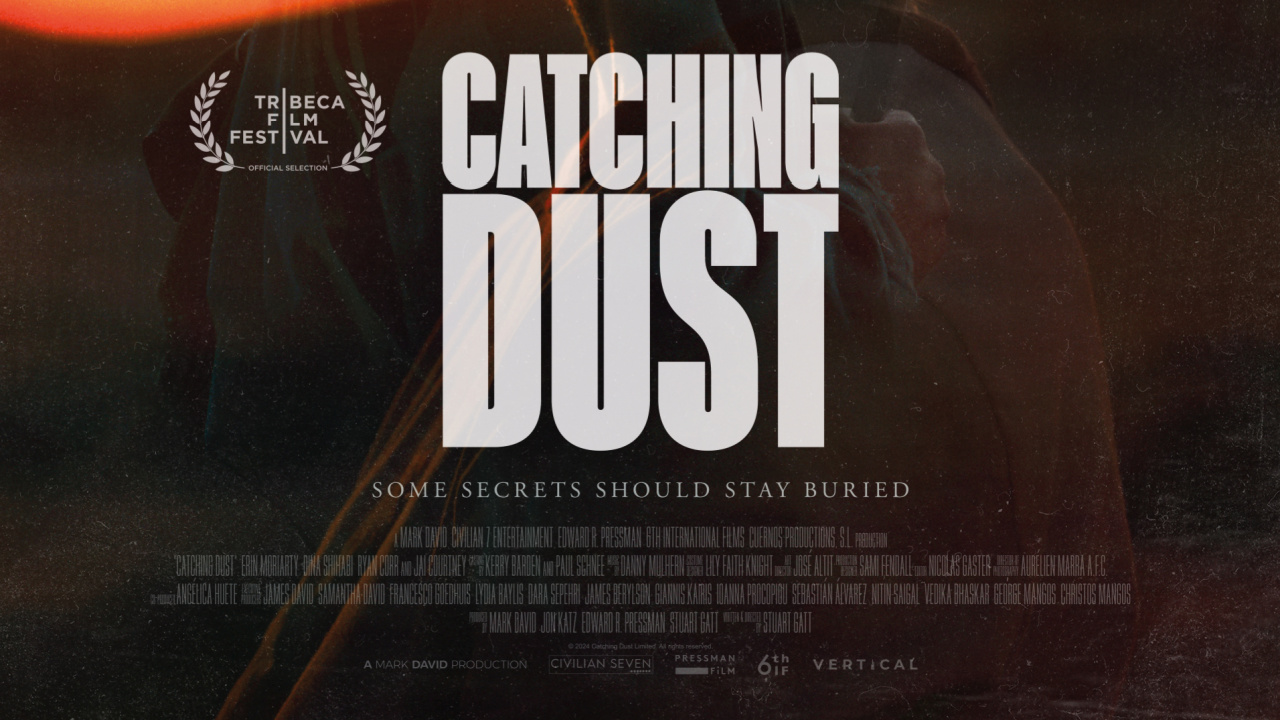
‘Catching Dust’ opens in select theaters on August 23rd.
Erin Moriarty Movies and TV Shows:
Buy Tickets: ‘Catching Dust’ Movie Showtimes
Buy Erin Moriarty Movies on Amazon

